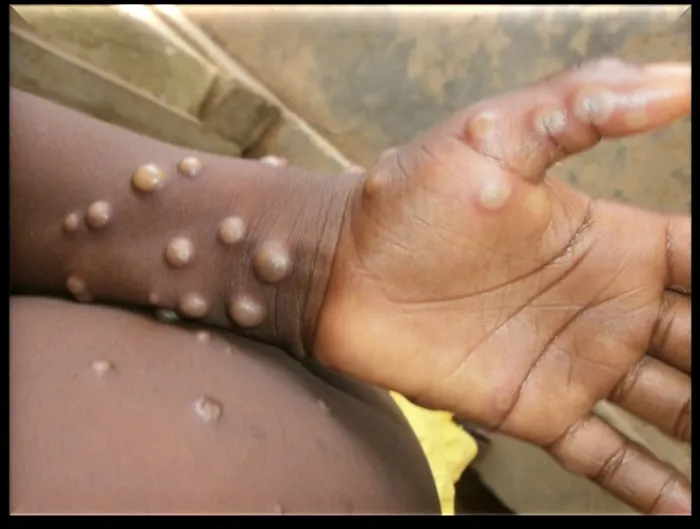Mpox cases rise amid vaccine roll-out as the public is urged to remain vigilant

The painful rash looks like blisters or sores and can appear on the face, palms, soles of the feet, groin, and other areas. File image.
Mpox, previously known as Monkeypox, is a rare viral infection related to smallpox. It's much less severe, but can cause significant health issues.
Prior to 2022, it was not known to spread easily from person to person. Traditionally, people caught it from direct contact with infected animals, such as rodents or through bites from these animals.
How does Mpox spread?
The World Health Organization (WHO) identified a global outbreak of Mpox in 2022. This marked a change in how the virus spread.
For the first time, Mpox was seen spreading through sexual contact. It is important to note that while sexual contact has become a notable mode of transmission, the infectious disease can still be contracted through close physical contact, respiratory droplets and bites or scratches from infected animals.
A report from the WHO in August 2023 stated that there had been 186 Mpox deaths worldwide since the 2022 outbreak, with a fatality rate of less than 1%.
In South Africa, six new cases of Mpox have been confirmed, raising the total number from seven to 13 since the first reported case in May 2024. The new infections were detected in Gauteng and the Western Cape regions. The death toll remains at two.
Who is most affected?
It’s important to note that Mpox does not exclusively affect men. Most of the cases in South Africa have been reported among men who have sex with other men.
These cases were typically identified through sexual health services or other healthcare visits in primary or secondary care facilities.
The initial case in South Africa this year was reported on May 9, involving a 35-year-old man from Gauteng.
Treatment
As of now, there is no registered treatment for Mpox in South Africa. However, the WHO recommends the use of Tecovirimat, also known as TPOXX, particularly for severe cases.
This is especially recommended for individuals with low CD4 counts (below 350). The South African Health Products Regulatory Authority (Sahpra) has endorsed and approved this treatment for severe cases.
In the latest statement, the health department said it had received a batch of Mpox-specific treatment, Tecovirimat - also known as TPOXX or ST-246, for the treatment of patients who experienced severe health complications because of Mpox.
“The process to secure more treatment, including vaccines, is underway in case the need arises,” the department explained.
“However, all mild cases will continue to be managed with supportive treatment used to manage complications like fever, pneumonia and skin infections.”
Government urges people to seek help for Mpox symptoms
The government is asking everyone to go to a healthcare facility if they think they have Mpox symptoms or if they've been in close contact with someone who has it.
This applies to all people, regardless of gender, age or sexual orientation, because anyone can catch this disease, which is both preventable and treatable.
Officials highlighted that hand washing was one of the best ways to stay healthy and to stop the spread of the disease.
"People should always wash their hands with soap and water or use an alcohol-based hand sanitiser, especially before eating, touching your face, or after using the bathroom,” the statement read.
Symptoms
Common signs of Mpox include a rash that can last from two to four weeks, fever, headache, muscle aches, back pain, low energy and swollen glands.
"The painful rash looks like blisters or sores and can appear on the face, palms, soles of the feet, groin and other areas."
The department announced that the National Institute for Communicable Diseases (NICD) was working hard to track and investigate Mpox cases.
They were also collecting and analysing data to better understand how widespread the outbreak was.
The department is also working with partner organisations to increase efforts in educating the public.
They are running targeted and general awareness campaigns to give people important information about Mpox.